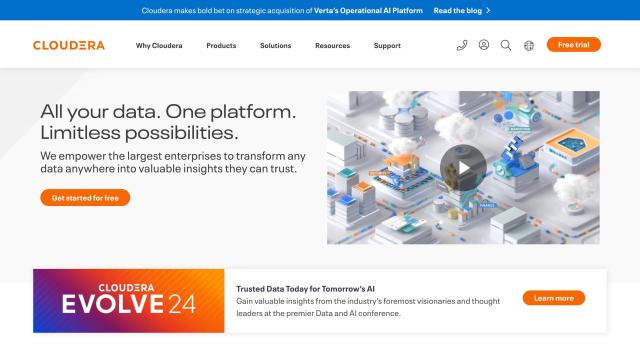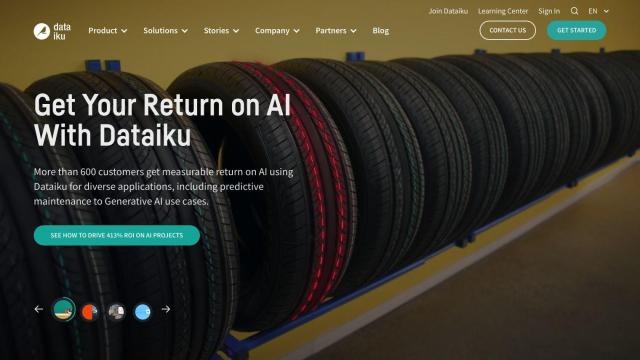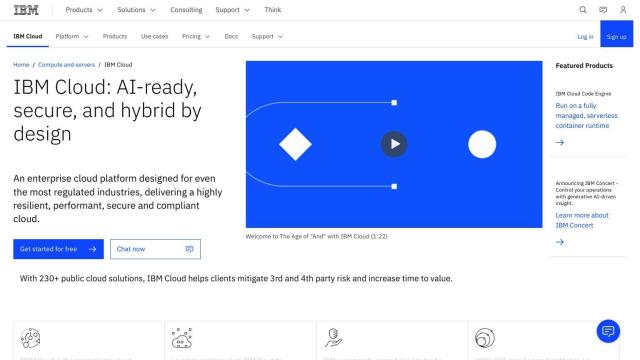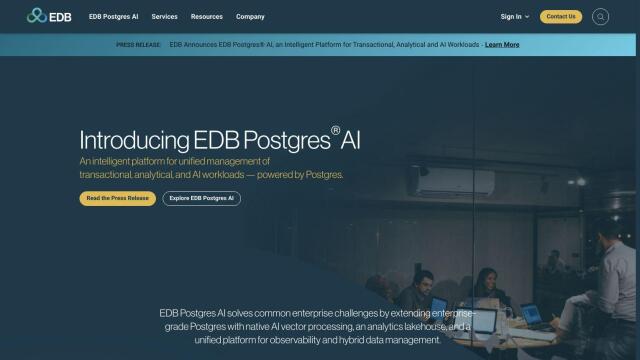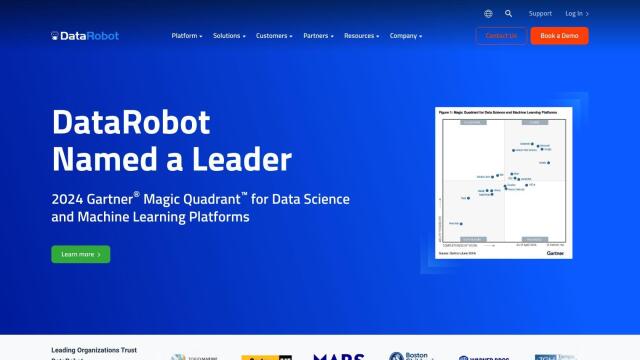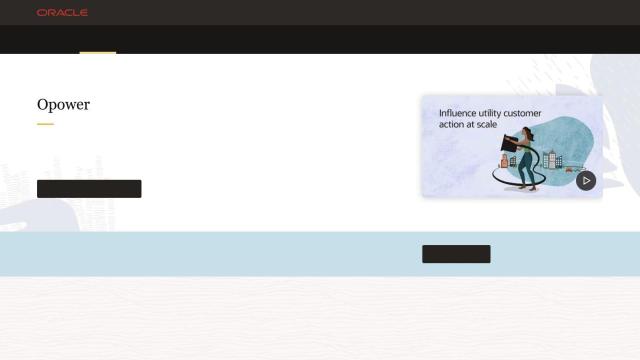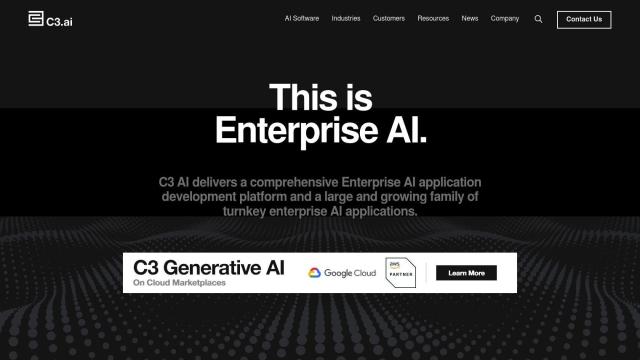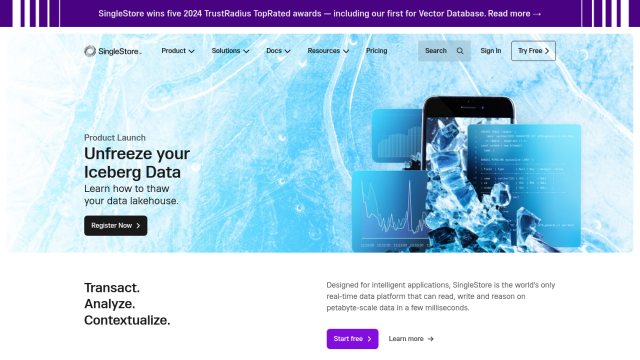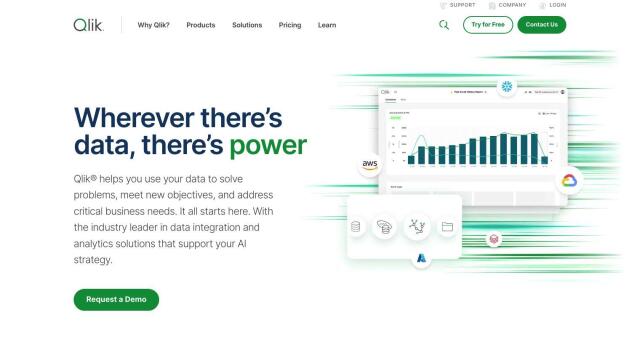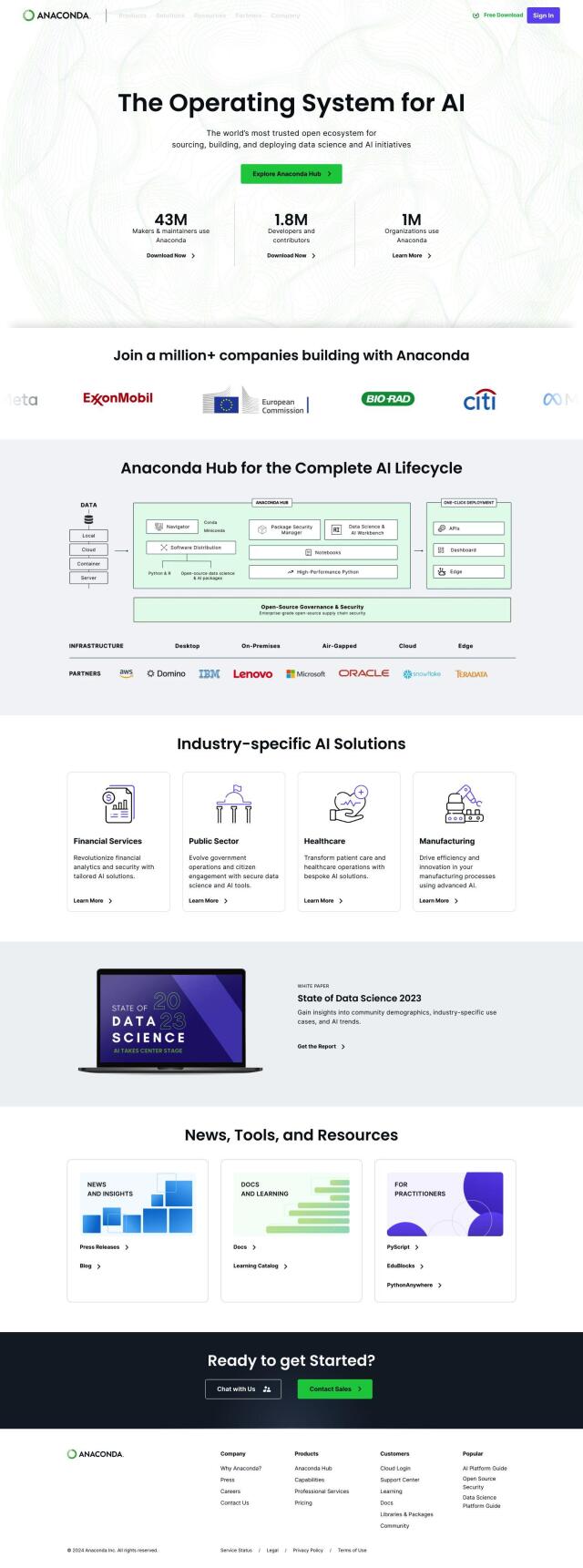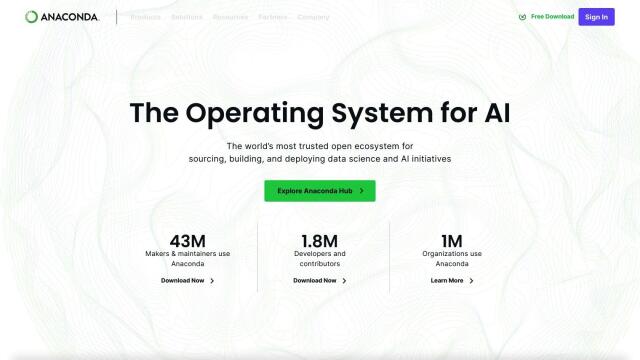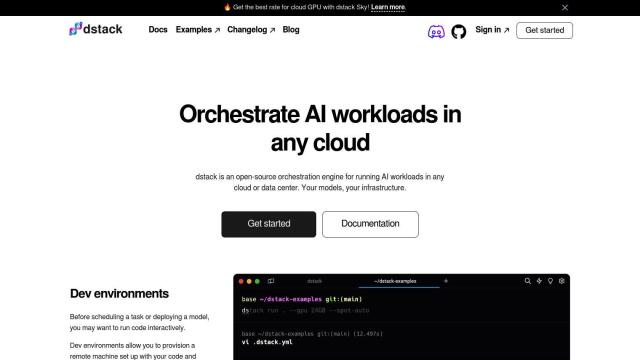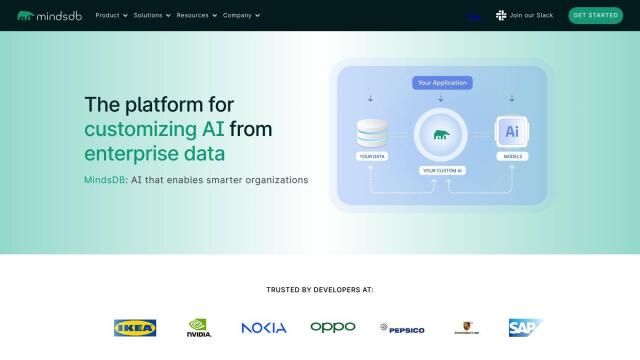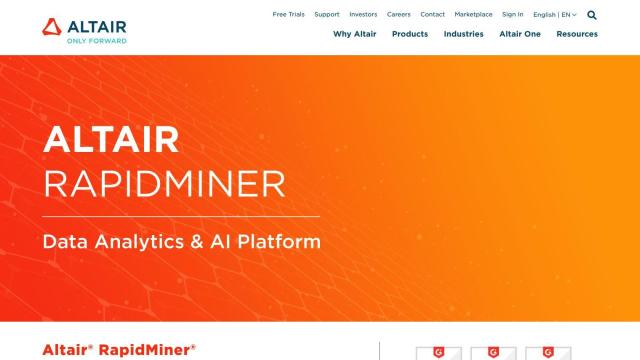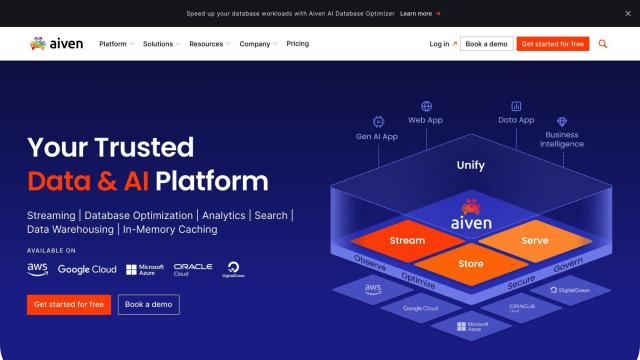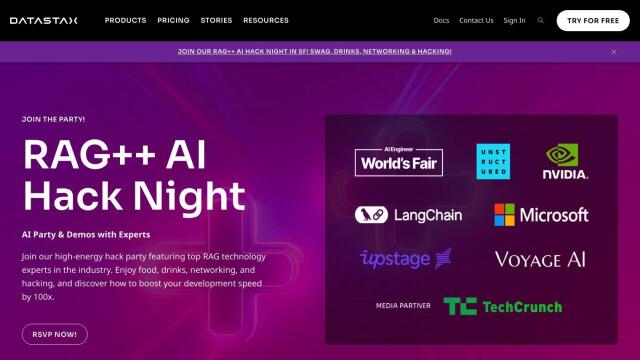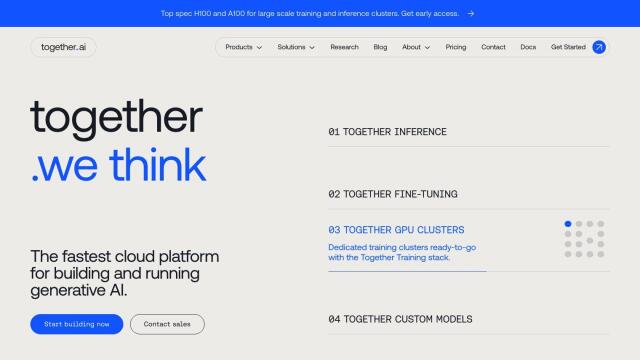Question: We need a system that can support multiple workloads, including data analytics, AI, and machine learning; do you know of any options?

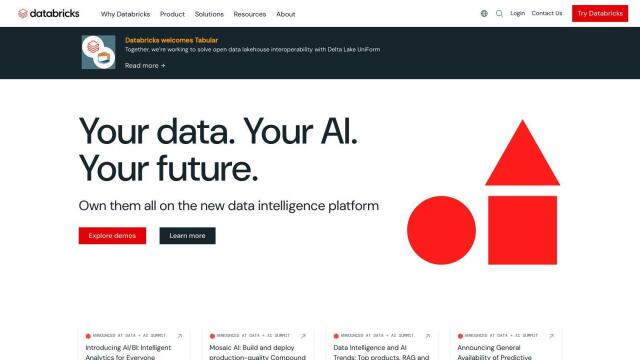
Databricks
First up is Databricks, a data intelligence platform that marries generative AI to link data and analytics. It promises AI-infused data intelligence, democratized insights through natural language and cost-effective operations. It's built on lakehouse architecture for unified data management and supports a broad range of tools and integrations, so it's a good option for many different customers.

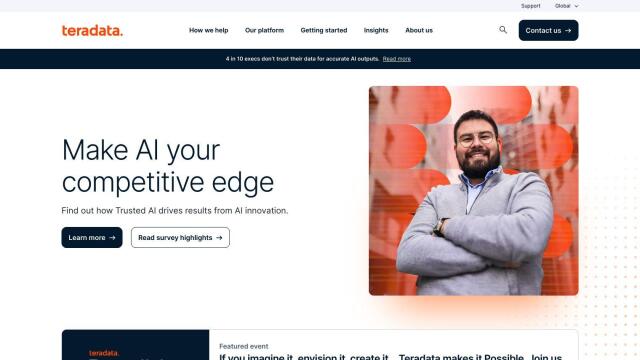
Teradata
Another strong contender is Teradata, a cloud analytics and data platform that unifies and harmonizes data across an organization. It spans multiple workloads, including AI/ML, lakehouses, data lakes and data warehouses. Teradata's ClearScape Analytics feature speeds insights, and Teradata can run in public cloud, hybrid cloud or on-premises environments, so it's got flexibility and scale.


Anyscale
If you're looking for a more specialized AI development and deployment foundation, check out Anyscale. Built on the open-source Ray framework, Anyscale spans a broad range of AI models and comes with features like workload scheduling, cloud flexibility and smart instance management. It's designed for high performance and efficiency, with built-in tools for code development and a free tier for small projects.

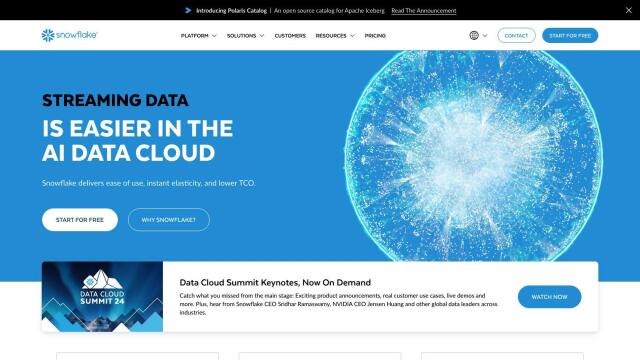
Snowflake
Last is Snowflake, a cloud-based system that combines data, applications and AI. It lets companies unlock their data and applications while supporting multiple workloads. Snowflake's productivity and data-driven decision-making focus makes it a good option for businesses trying to get the most out of their data.

